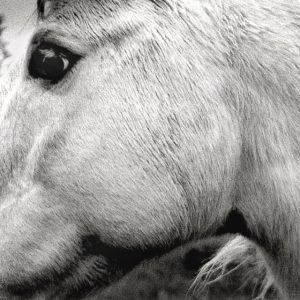
Folk music doesn’t simply exist. It constantly reinvents its self, creating something both old and new at the same time. Bonny Light Horseman – the group and the album created by Anais Mitchell, the singer/songwriter behind the Tony winning Hadestown; the Fruit Bats’ Eric Johnson; and Josh Kaufman, producer and collaborator with The National, Craig Finn and Hiss Golden Messenger – keep folk music relevant by refusing to treat the genre as static. As Kaufman explains, “These songs don’t really end. They just kind of keep going. And I think that’s maybe the most contemporary part about them. We won’t finish them, they’ll never be done.”
Essentially there are no rules, so rather than merely redoing theses songs, Bonny Light Horseman have made them their own. The loose swing of the title track, with saxophone by Bon Iver’s Michael Lewis sets the tone. It’s not quite folk and not quite jazz. It resides in a time and place all it’s own. As Johnson explains, “(we) sing you ancient love songs of timeless humanity and heartbreak. Songs that are gonna make you feel something no matter what century you’re in.”
‘Deep In Love’ started life as a song intended for the Fruit Bats before Johnson realised its similarity to ‘The Water Is Wide’ and appropriated it for this band. ‘The Roving’ is as traditional as a song comes, yet with a modern chorus that adds a completely new element fitting on a musical bed of piano and drums. Similarly ‘Black Waterside’, previously reworked as ‘Black Mountain Side’ by Led Zeppelin, features an arrangement heavy on piano and brilliant sax work ending on unaccompanied, magical, wordless vocals.
Initially brought together with an invitation to the 2018 Eaux Claires festival by Justin Vernon and Aaron Dessner, they quickly became a band. Kaufman explains, “It’s like a love story: a really big fire, and the shared ideas of what we wanted the music to feel like. We wanted an openness and for it to feel emotional and personal.” Mitchell adds, “The folk singer Martin Carthy once said, ‘You can’t break these songs that are hundreds if not thousands of years old; you’re not gonna hurt them by messing with them.’ The songs feel like ours, but they’re not ours. We worked on them and they feel like an authentic expression of us, but we’re also reenacting ritual.”
The music on Bonny Light Horseman is alive, reworked for a new generation because that is what folk music is about, taking the old and making it new for succeeding generations. In the hands of Johnson, Kaufman and Mitchell this music isn’t brittle, it has been given new life, because the only constant is change.
